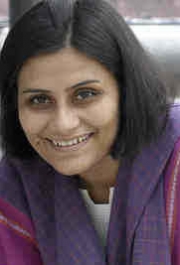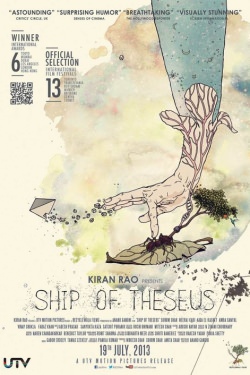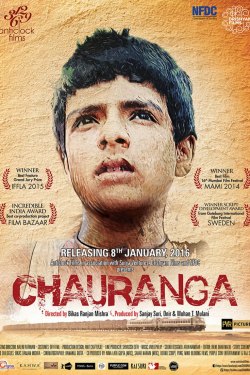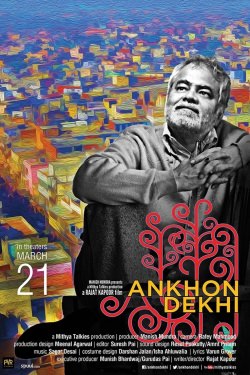Top Rated Films
Namrata Joshi's Film Reviews
-
Do Lafzon Ki Kahani is way too pedestrian. The mushy tagline doesn’t help either: “Love never hurts… Love heals”. I would have added “Love bores to tears” to that.
-
One can’t quite go looking for political correctness in such a film. But Housefull3, doesn’t know where it wants to stand on issues. No wonder after cracking many a joke at the physically challenged its attempt to redeem itself in the end seems half baked and forced. The film’s stand on racism is also just as confused.
-
Veerappan is watchable because it belongs to Muthulakshmi. Usha Jadhav is excellent as Veerappan’s wife be it cooking in the jungles for her husband (Sandeep Bharadwaj) or braving police torture for him or loving him despite his indiscretions. She retains the innocence and vulnerability even as she reposes trust in a woman who is actually out to use her to avenge her husband’s death at the hands of Veerappan.
-
Much of the terror resides in Radhika Apte’s eyes. She is the film, all by herself, that too in just a single setting. The film draws on the essential horror from her. The performance is an external manifestation of the workings of her inner mind. And Radhika she is sensational as a woman living with her own demons—be it fighting with her sister or being flirtatious with friends, slurring on her speech or travelling miles (metaphorically) to leave garbage bag just outside her house. Or just being radiantly vulnerable. In her we get a radically inventive scream queen. All hail her!
-
It’s about swinging between hope and despair. It’s about a bond forged in the face of a possible bereavement.
-
Randeep Hooda stands out in this melodramatic melange of cardboard cut-outs that substitute for characters.
-
Azhar lacks spine. It is evident in the long disclaimer preceding the film in which the team seems to be making a claim on cricketer Mohammad Azharuddin’s colourful and controversial life as a source material yet maintaining that it is a fictional account. All to escape the legal battles the film could land them in.
-
The slow and steady passage from love to hatred and pride would have been a profound and poignant journey that the film doesn’t quite embark on. It’s in too much of a hurry to reach nowhere.
-
Written by a woman, directed by a woman, but that doesn’t change much about what Sunny Leone or her films have come to represent in Bollywood. One Night Stand is also about sex and titillation, yet is eventually square and conventional when it comes to the overarching issues of morality and family values, the good woman and the bad one, the temptress and the caring wife.
-
‘Traffic’ wears thin, feels rushed. There is neither much of an emotional tug nor an edge-of-the-seat urgency that the film promised to deliver.

























